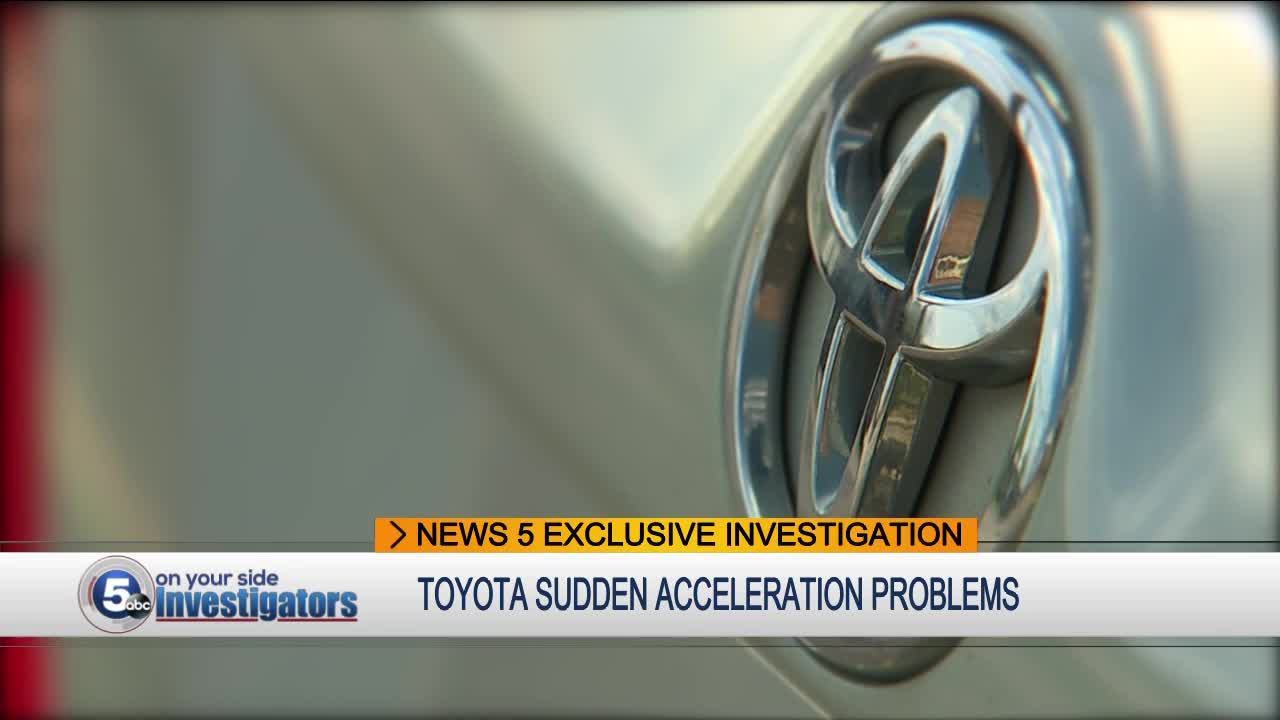Toyota has had problems with sudden acceleration in some of its models. Now a local man said it's happened to him, too.
Steve Friedman from Friedman Used Cars in Bedford told us that a couple of weeks ago his 2002 Toyota Highlander accelerated on its own.
"I'm taking it to the gas station because it didn't have any gas in it," said Friedman. "And, all of a sudden, it goes to 4,000-5,000 RPMs. Took off on me.
"I knew to put it in neutral. I knew to turn it off. I have driven hundreds of thousands of cars in my career. That's never happened."
No recall for sudden acceleration
The National Highway Transportation Safety Administration lists two recalls for the 2002 Highlander. One is for the child protection lock on side doors, and the other is for a fuel tank hose attachment. However, there were none for acceleration issues.
"This is a safety issue. This is a tremendous danger, a hazard," said Friedman.
There are no recalls despite the NHTSA listing 30 filed complaints for vehicle-speed control from people who say "the car accelerated on its own" even though the driver "was pressing the brakes as hard as (he) could."
Someone else wrote, "I backed off the accelerator, but the engine acted as if I was flooring it," and, "It was scary."
Another writes, "The car accelerated on its own and was unable to stop without rear-ending another car."
"I don't want somebody to get hurt, killed or possibly killing another person not even in their car,” said Friedman.
What's the issue?
Friedman's car was diagnosed with a "throttle stuck open on the throttle body" with corrosion.
Other car owners said they had "carbon and built up corrosion" on their throttle systems.
Consumer Reports calls it "The black death of sludge." The publication reports that some vehicles are more prone to build-up, including the 2001-2002 Toyota Highlanders.
Friedman showed us the throttle body on his vehicle and said it was definitely caked and corroded.
Consumer Reports says there were "over 3,000 complaints about sludge problems” for various vehicles built between 1998 and 2005.
In 2007, in district court in Louisiana, Toyota settled a class-action lawsuit covering millions of cars. The company said it did nothing wrong but agreed to fix engines with build-up issues.
Friedman wants more to be done. "There has to be a recall," he said. "We have to save lives.”
We contacted the NHTSA numerous times with specifics about this issue. However, the information it provided did not address our sludge and speed control questions about why there is no recall.
Sitting on local lots
Meanwhile, we found several 2001 and 2002 Highlanders being sold at local dealerships within 30 miles of Cleveland and even more within 100 miles. We visited those dealerships and called others warning them about the class-action sludge suit.
We also contacted Toyota about Friedman's concerns. A spokesperson said there was a "lack of maintenance" on Friedman's car and people should "perform regular maintenance of their vehicles."
When we asked if Toyota would like to talk about the class-action settlement, another spokesperson said they have "no further comment."
In the NHTSA complaints, people wrote about being "thoroughly disappointed in Toyota's nonchalant attitude" for a "potentially fatal situation" and said Toyota "did not offer any assistance."
"I'm going to keep up the good fight. You better believe it,” said Friedman.


